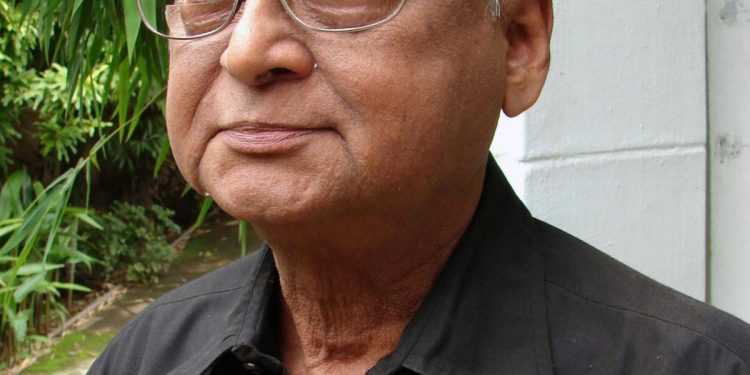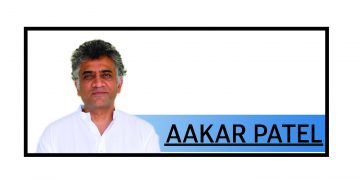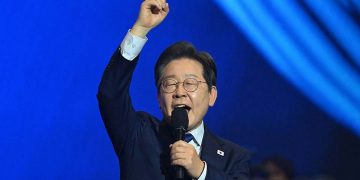“I think I have always been in love with silence, and its destruction is, to me, as perhaps to everyone else, a matter of concern. Silence is a word which comes back over and over again into my life and, consequently, to the poetry I write.” – Jayanta Mahapatra
The sparks of the funeral pyre might have gone after the remains got aligned with the elements, however, the fragrance of the legendary poet Jayanta Mahapatra’s repertoire will continue to live and inspire generations to come.
For friends, contemporaries and fans Jayanta reminiscences the jovial creative genius who completed his earthly journey at a young age of 95! Yes, he never aged to be called old, they retort. He left many unfinished tasks which they still wanted to rollout from the hospital bed of the indomitable fighter who had cheated death on many occasions in the past. Sadly, cruel destiny had something ominous in store this time.
However, after coming to terms with the reality, his ‘lovers’ – as Mahapatra’s fans call themselves- would prefer to fall back on his legacy to cope with the losses.
Talking about his inheritance and works, this space is insufficient to describe them and what he has achieved in a career spanning over half a century. From being the first Indian English poet to get a Sahitya Akademi award and a Fellowship to his poems being part of prestigious poetry journals from across the globe such as The New Yorker, The Sewanee Review, New England Review, Chicago Review, The Hudson Review, The Kenyon Review, The New Republic, Poetry International, Boundary, Poetry(Chicago), Georgia Review, and many others, his has been an incredible body of works. Apart from his craft, there are several more aspects of his life that will undoubtedly become folklore in a few years from now.
Here’s a close look at some select anecdotes from his eventful life.
Seeking escape in books
He had a difficult childhood. “Taunted, bullied by my classmates for almost all of my school years; perhaps because I was good at studies, and then because I looked like a naked little worm, I sought refuge in books – books that made me dream. I loved to go into the novels of H. Rider Hoggard, Edgar, Rice Burrows, and Walter Scott and all my loneliness seemed to go away,” the legend reportedly told Different Truths, a social journalism platform, about his early years. Jayanta also told how he ran away from home and, after arriving in Mumbai (Formerly Bombay), slept on a bench at the Chinchpokli rail station because he didn’t have any money. He also spent a hot and humid night outside the Howrah railway station with some homeless people who had nowhere to go.
Transition from
Physics to poetry
His profession was teaching Physics, but his love was writing poetry, which won him international acclaim. The first is about science, whereas the other is about feeling. What did he have to say about this contradiction? “Physics never interfered with my love for literature,” he remarked in an exclusive interview with aforementioned portal and went on to add, “When I started writing poetry and that too at a late age, I felt my English could be the right medium to express my emotions and I wasn’t wrong. Higher physics and poetry said the same thing: the chaos in the universe and the ambiguity, the uncertainty in life. Physics was the poetry of the intellect and poetry the science of human emotions. And there could be no contradictions between them.”
Burdened with awards
Most creative people yearn for honours and recognition. However, Jayanta Mahapatra was in another league. He admitted on multiple occasions that receiving prizes had become a burden for him. They were sort of weight on his shoulders that he never became free from them. Quoting Sir Winston Churchill he once remarked, “Medal glitters but it also casts a shadow.” No wonder, he didn’t think twice before returning the Padma honour in 2015 to protest against ‘rising intolerance in India.’
Secret behind youthfulness
This was nicely articulated in a recent Facebook post by his close friend and eminent author Jagannath Prasad Das (JP). A tiny handwritten note in Odia, on May 15, 2010, from Jayanta to JP says, “It doesn’t feel like getting older if you love people or things around you with intensity, isn’t it JP?” Then, noted poet and former editor of family magazine Sachitra Vijaya, Kedar Mishra shares how the great poet was impacted by the love and affection showered on him by his admirers. “With such abundance of love, who else would be king except me,” he reportedly told Mishra beaming with contentment.
On death
On how Jayanta Mahapatra viewed death in his twilight years, former VC of Central University Odisha Sachidananda Mohanty, quoting the former in his write-up in The Frontline mentioned, “Death has different meanings at different stages of your life. For example, when you are about 50, you are afraid of death as you see so many of your close associates dying. But when you come to my age, when you are 80-plus, the fear of death is no longer there. As I live in isolation these days, I get this overwhelming desire for death at times. But the next moment, the urge to live comes back.”
Did he sense the end?
The aging bard had the premonition about the last days? Author and publisher of Dhauli Books Manu Dash thinks so. Sharing a chat he had with Jayanta a few days ago, Dash revealed, “When I said to JM (Jayanta Mahapatra) to bring out his forthcoming anthology Birds of Water in December 2023, he laughed and asked: Do you think I shall survive till then? I was shocked and abruptly answered: I shall bring it out on your 96th birthday October 22. He seemed happy but kept quiet.”
Here’s a composition titled A Poem on Untouchability from that book.
It’s my appeal to you, dear friends
That, on the day of my death
Do not come in your grief
To see me for the last time
It pains me a lot
To think of that day
When, standing by my dead body,
You’d be speaking to yourselves
that, as soon as you’d get back home,
you would wash your body clean,
before you do anything else.
Perhaps Dash is right.
A few amazing facts
Rare failure
At the age of 13, he couldn’t qualify Senior Cambridge in first class. He had to settle for second division. The great Indian English writer couldn’t even pass English paper during his initial years. Then he also failed in English and Mathematics in his first year of intermediate. Besides, Jayanta couldn’t clear his practical in Optics and dropped the theory paper during his Graduation in Patna University.
Learnt Odia from English professor
Jayanta was unable to read or write Odia when took admission in Ravenshaw University (then a college). So, he sought help from Srimad Sahoo, a professor in English at Ravenshaw and learnt Odia, a compulsory subject then, privately.
An abandoned Calcutta trip
Despite being bashful and childlike, he has always been a fantastic lover. He fell in love with Jyotsnarani, a classmate. Despite Jyotsna’s family’s opposition to their love, the two married when Jayanta was 20. He was completely smitten. So much so that he borrowed Rs 200 from a lender to spend his vacation in Kolkata (formerly Calcutta). He checked into a low-cost hotel there. However, Jayanta had to abandon the vacation in the middle and return home because the money he borrowed had been spent on books.
Monroe fanboy
Jayanta was always interested in photography in his young days. Images shot by him even appeared in Film India magazine published from Mumbai. However, photography was an expensive hobby at that time also. So, he had to drop the idea of becoming a photographer and leaned towards poetry. But before that he used to watch a lot of movies and was a major Marlyn Monroe fan. He was very sad when the Hollywood actress died under suspicious circumstances.
No retirement from writing
He had been fighting for his life in the hospital for over a month, yet he never stopped writing. “I don’t want to lie idle on the bed. Please provide me with a pencil and a few sheets of paper. I want to write,” the poet expressed while getting treatment. In fact, at the hospital, a book of his titled Jhanzi was released. He also wanted to check the final draft of Chandrabhaga 20, the magazine he had edited for the last four decades only after his final clearance was the content sent to print.
BIJAY MANDAL, OP






































